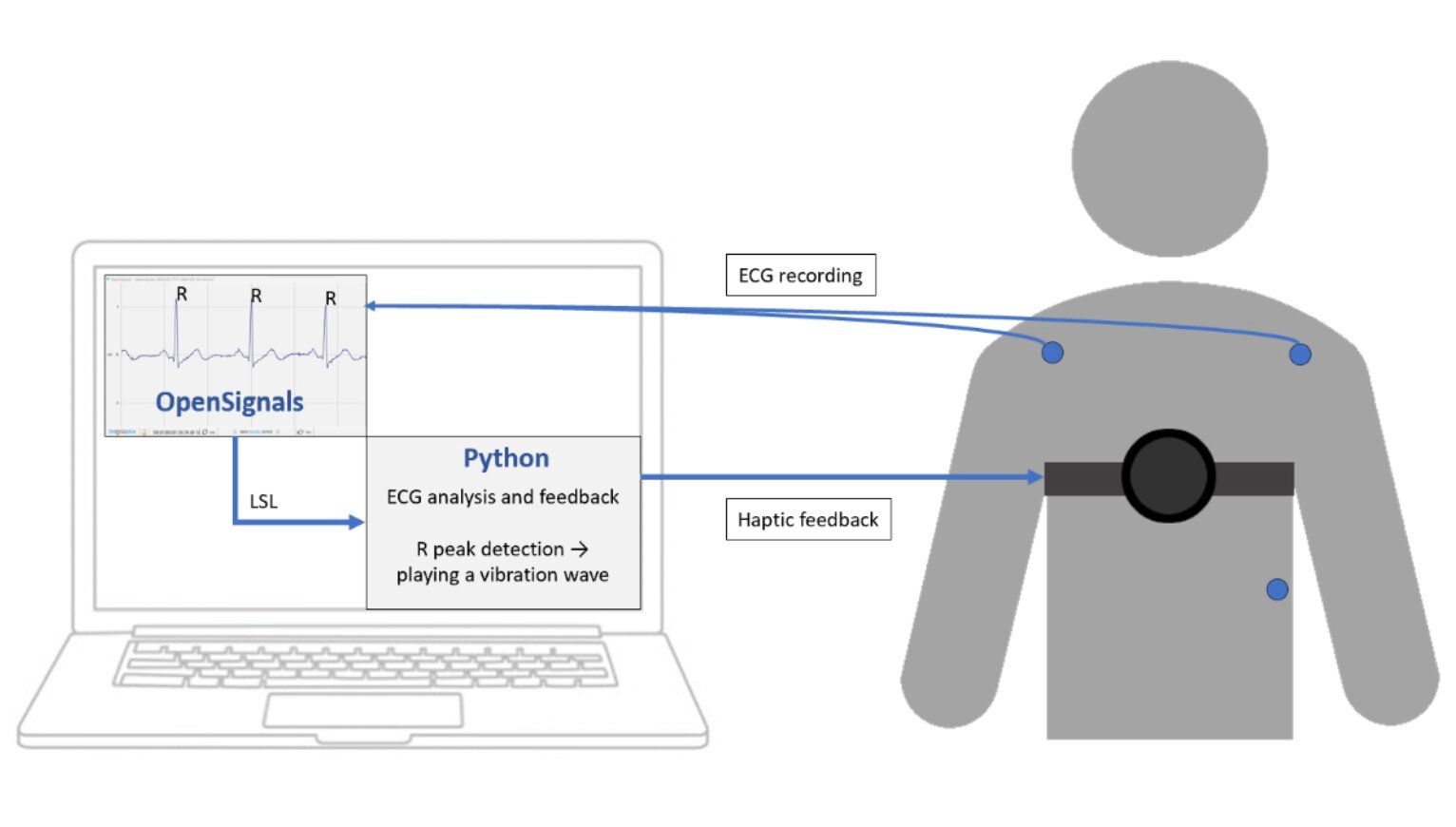Click here to sign in with or
Forget Password?
Learn more
share this!
Share
Twit
Share
Email
September 4, 2024
This article has been reviewed according to Science X’s editorial process and policies. Editors have highlighted the following attributes while ensuring the content’s credibility:
fact-checked
trusted source
proofread
by Reichman University
A recent study published in Psychophysiology by a team of researchers at the Ivcher Institute for Brain, Cognition, and Technology (BCT institute) at Reichman University (Herzliya, Israel) showcases how a novel real-time haptic feedback technology can enhance interoceptive awareness and improve mental and physical health.
Interoception refers to the processes which facilitate the perception, interpretation, and integration of various signals which originate from within the body. Abnormal, or impaired interoception is associated with numerous psychological disorders such as depression, anxiety, and eating disorders, as well as neurodegenerative diseases. Enhancing interoceptive abilities has shown therapeutic promise for improving mental health outcomes, reducing symptom severity in chronic conditions, and fostering prosocial behaviors.
The study, led by Dr. Olga Dobrushina (MD Phd) investigated the effectiveness of a haptic heartbeat supplementation technology that combines biofeedback and sensory augmentation principles. Users received real-time feedback of their own heartbeats via gentle vibrations delivered to the chest, which closely mimicked the natural sensations of a heartbeat.
“The study involved two groups of 30 participants receiving either the haptic or visual feedback of their heartbeats,” says Prof. Amir Amedi, founding director of the BCT Institute. “In the haptic condition, we used a custom-built device that provided the vibrations in synchrony with the participants’ own heartbeats, and following the wave of the rise in arterial pressure. The visual feedback condition consisted of an animated beating heart on a screen.”
The team analyzed self-reported measures of attentional focus, and assessed the participants in both conditions using a heart rate discrimination task where participants must estimate the timing of their own heart beats, as well as their confidence in their guesses.
“What we were able to see is that after a single session of haptic heartbeat feedback participants’ interoceptive accuracy on the heart rate discrimination task improved significantly, as did their confidence in their interoceptive abilities,” Dr. Dobrushina explains.
“They also found the haptic condition much more pleasant, which suggests that matching the sensory characteristics of wearable technology to our innate, natural bodily sensations can enhance user satisfaction, but also the efficacy of interoceptive training” she adds. The results of the experiment also illustrate that the haptic feedback shifted participants’ attention towards their bodily sensations, a crucial aspect of interoception.
“This is quite notable as we did not see this shift in the visual feedback condition,” Prof. Amedi clarifies. “So it seems that one of the unique benefits of haptic technology is that it might be able to foster a deeper connection between the mind and the body.”
“Abnormal interoception represents a fairly common vulnerability factor for psychopathology,” says Dr. Dobrushina. Some strategies for improving interoception like mindfulness training while effective, can be challenging to engage in regularly.
“Using haptic feedback, especially in wearables could overcome these shortcomings,” explains Prof. Amedi. “Previous studies have shown that visual feedback of heartbeats outperforms mindfulness training in terms of enhancing interoceptive accuracy, and the haptic feedback we used, was able to outperform visual feedback.”
More information: Olga Dobrushina et al, Interoceptive training with real‐time haptic versus visual heartbeat feedback, Psychophysiology (2024). DOI: 10.1111/psyp.14648
Explore further
Facebook
Twitter
Email
Feedback to editors
11 hours ago
0
Oct 14, 2024
0
Oct 14, 2024
0
Oct 14, 2024
0
Oct 14, 2024
0
1 hour ago
1 hour ago
2 hours ago
2 hours ago
2 hours ago
3 hours ago
3 hours ago
3 hours ago
5 hours ago
6 hours ago
Jul 24, 2024
Nov 23, 2020
Feb 10, 2022
Jul 17, 2023
Jul 31, 2024
Jul 19, 2021
1 hour ago
2 hours ago
3 hours ago
5 hours ago
6 hours ago
7 hours ago
Use this form if you have come across a typo, inaccuracy or would like to send an edit request for the content on this page. For general inquiries, please use our contact form. For general feedback, use the public comments section below (please adhere to guidelines).
Please select the most appropriate category to facilitate processing of your request
Thank you for taking time to provide your feedback to the editors.
Your feedback is important to us. However, we do not guarantee individual replies due to the high volume of messages.
Your email address is used only to let the recipient know who sent the email. Neither your address nor the recipient’s address will be used for any other purpose. The information you enter will appear in your e-mail message and is not retained by Medical Xpress in any form.
Get weekly and/or daily updates delivered to your inbox. You can unsubscribe at any time and we’ll never share your details to third parties.
More information Privacy policy
We keep our content available to everyone. Consider supporting Science X’s mission by getting a premium account.
Daily science news on research developments and the latest scientific innovations
The latest engineering, electronics and technology advances
The most comprehensive sci-tech news coverage on the web
